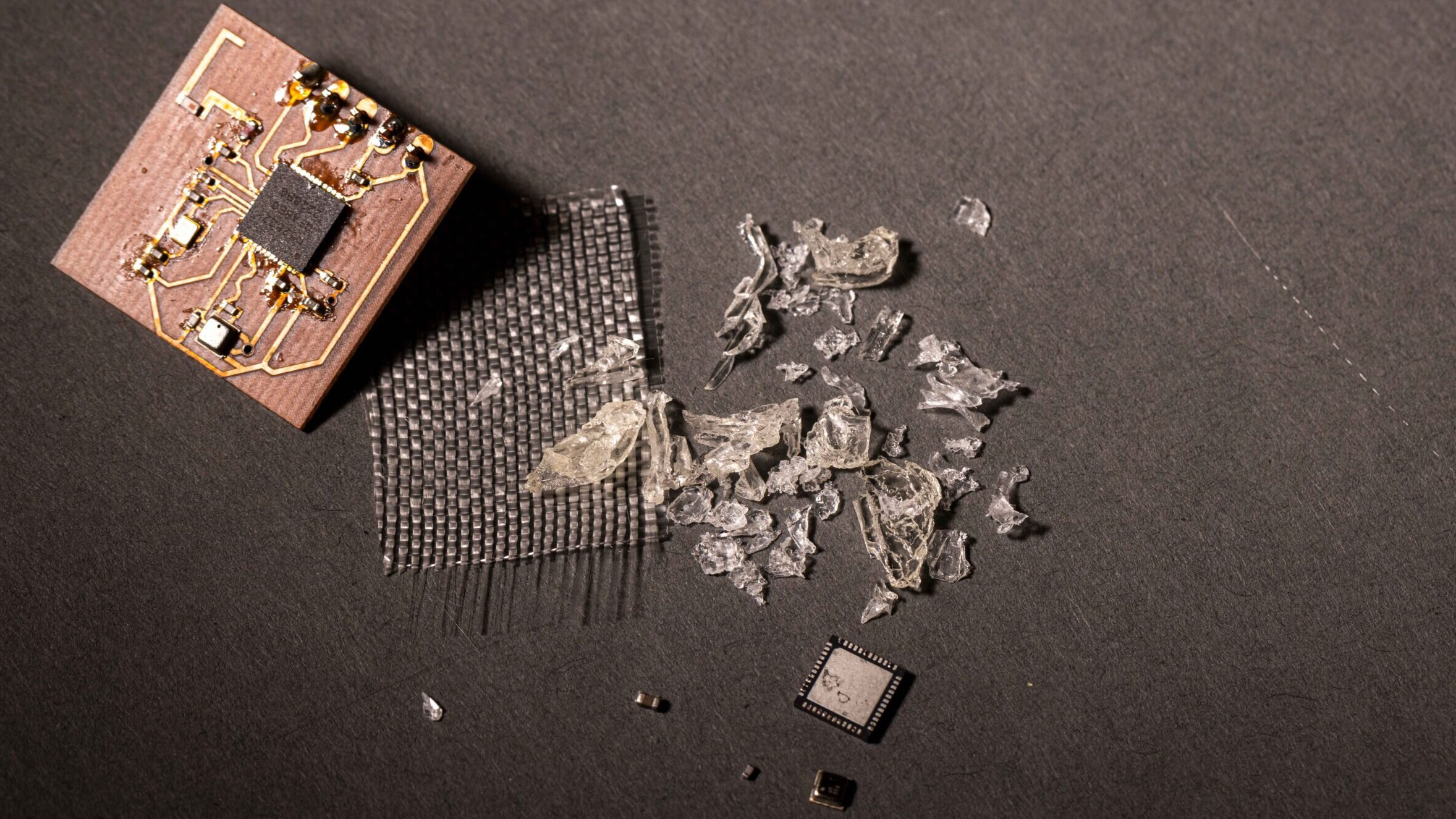New PCB design is repeatably recyclable — vitrimer PCBs could save millions of tons in eWaste, say UW researchers
vPCBs can be recycled with 98% vitrimer recovery and 100% glass fiber recovery.

Standard PCBs are known for being fireproof and chemical-proof, but as a result, they are notoriously difficult to reuse or recycle in any way. However, research published by the University of Washington points towards a new way of making more environmentally-conscious, actually recyclable PCBs. The new so-called 'vPCBs' (or vitrimer PCBs) are repeatedly recyclable, with very little material going to waste during the recycling process.
vPCBs work by replacing most of the PCB material with vitrimer. Vitrimer is best thought of as a highly engineered polymer jelly that can be either solidified to create a PCB or swelled to make it possible to pluck out components for reuse or recycling. With this process, which should be compatible with existing manufacturing processes, researchers were able to recover 98% of the vitrimer and 100% of the glass fiber by recycling a vPCB.
According to the testing of the original research team from the University of Washington, vPCBs perform roughly the same in strength and electrical properties as FR-4, which is the current most common PCB material in use today. vPCBs, then, seem like they may be a natural replacement — particularly with the potential to reduce carcinogenic emissions by 81% compared to standard PCBs. Since standard PCB disposal makes up a great deal of existing e-waste, a more sustainable solution like this may be just what the environment needs in today's tech-driven society.
Previously, we've also seen another major attempt at making PCBs more sustainable— by making them water-soluble! That is, functioning PCBs that can be dissolved in water, from which their components can still be recovered afterward. If that sounds a lot like this project, that's because it is — water-soluble PCBs have the same main benefits as vitrimer PCBs. (Also, remember that your working electronics shouldn't be coming into contact with water anyway, regardless of how the PCB was made.)
With efforts to make more sustainable PCBs and to better recycle the material we already have — like recycling plastic utensils for 3D printing — it does seem that at least some in tech circles still care about reducing the industry's impact on the planet. Hopefully, we'll see more eco-friendly manufacturing approaches like vPCB become commonplace.
Get Tom's Hardware's best news and in-depth reviews, straight to your inbox.

Christopher Harper has been a successful freelance tech writer specializing in PC hardware and gaming since 2015, and ghostwrote for various B2B clients in High School before that. Outside of work, Christopher is best known to friends and rivals as an active competitive player in various eSports (particularly fighting games and arena shooters) and a purveyor of music ranging from Jimi Hendrix to Killer Mike to the Sonic Adventure 2 soundtrack.
-
artk2219 Reply
Some PCB's go through a water wash before going into a product, i'd love to know how they would handle being water soluble in that instance. This is still a welcome change, but there are always some potential problem areas with most new processes and materials.Admin said:vPCBs, which are PCBs built with a sustainable and recyclable vitrimer polymer, debut. This contrasts with traditional PCBs which are 'basically impossible to recycle.'
Replace PCBs with vitrimer PCBs to save millions of tons in eWaste, say UW researchers : Read more -
Eximo Can't recycle them into new PCBs all that reliably, but I have seen the results of metal reclamation from PCBs. You end up with a glass fiber mulch that you could press into all kinds of rigid shapes. Why not used PCB lawn chairs?Reply -
ThomasKinsley I remember one of my first motherboards included a warning that it had toxic materials and couldn't be thrown out. V-pcbs would be a welcomed addition to computing.Reply -
I Meh, just because researchers "can" recycle them, doesn't necessarily mean that society "will" recycle them.Reply
There's already plenty of materials that seem like they'd be easier to recycle, yet aren't.
Water dissolving PCBs though, depends on the specifics. Some of us live in high humidity areas and they are bound to be hygroscopic enough to swell and ruin the circuits.
Plus, as someone who recycles things for repair and reuse, it is not unusual for me to wash PCBs in water, and during manufacture, many are exposed to water to rinse off the water soluble flux to begin with.
At a minimum they would need a very durable and heat resistant waterproof coating that is dissolved off with a solvent.
Why not used PCB lawn chairs?
Yes, downcycling might make sense but there is still the question of whether it is cheaper to extract the fibers vs buying new. Fiberglass isn't expensive. -
Eximo Cheaper would be the problem, but that is what faces almost all recycling and why most plastics don't get recycled. Either needs to be subsidized or normalized. Might also make a decent filler for concrete.Reply